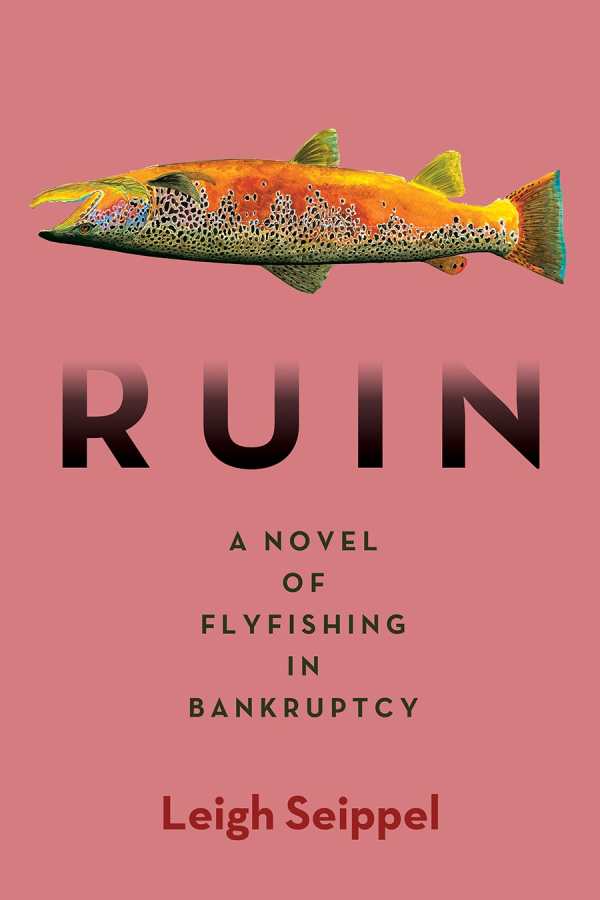Ruin
A Novel of Flyfishing in Bankruptcy
Leigh Seippel’s brooding literary novel Ruin explores fishing, the depths of the soul, and troubled waters.
The life that Frank once led is over after financial missteps led him to ruin. He’s a fractured man, but also primed to experience life anew. Thus, he and his wife, Francy, head out to a forgotten uncle’s dilapidated farmhouse in the Hudson Valley—a place regarded as an American Eden, and populated by characters straight out of the Bible. That farm is the last piece of property that they own. Here, Frank begins again. He and Francy are enraptured by the bucolic beauty around them.
Then Francy and Frank befriend a neighbor, Jace, who invites them to a meeting with his eccentric fly-fishing friends. That group delights in debating fascinating, obscure writers, and discussing how to make their own flies. Among these new people, Frank is encouraged to seek his own untapped depths out in the wilderness. He also witnesses as a new friend, Robert, struggles with his own demons. Frank offers Robert a space for his new brew house, becoming Robert’s partner and pitchman. He begins to travel the Northeast, selling microbrewed beers. But back home, Jace becomes Frank’s rival for Francy’s affections; Frank becomes paranoid over his wife, leading to violence.
Poetic and marked by frequent literary allusions (to the Bible, to Izaak Walton’s seventeenth-century book The Compleat Angler, and to The Great Gatsby among them), the book foreshadows Frank’s doom in his new, little paradise well. Still, its conclusion is a surprising one.
Ruin is a complex novel in which a bereft man learns to reconsider the power of the natural world.
Reviewed by
Jeremiah Rood
Disclosure: This article is not an endorsement, but a review. The publisher of this book provided free copies of the book to have their book reviewed by a professional reviewer. No fee was paid by the publisher for this review. Foreword Reviews only recommends books that we love. Foreword Magazine, Inc. is disclosing this in accordance with the Federal Trade Commission’s 16 CFR, Part 255.

